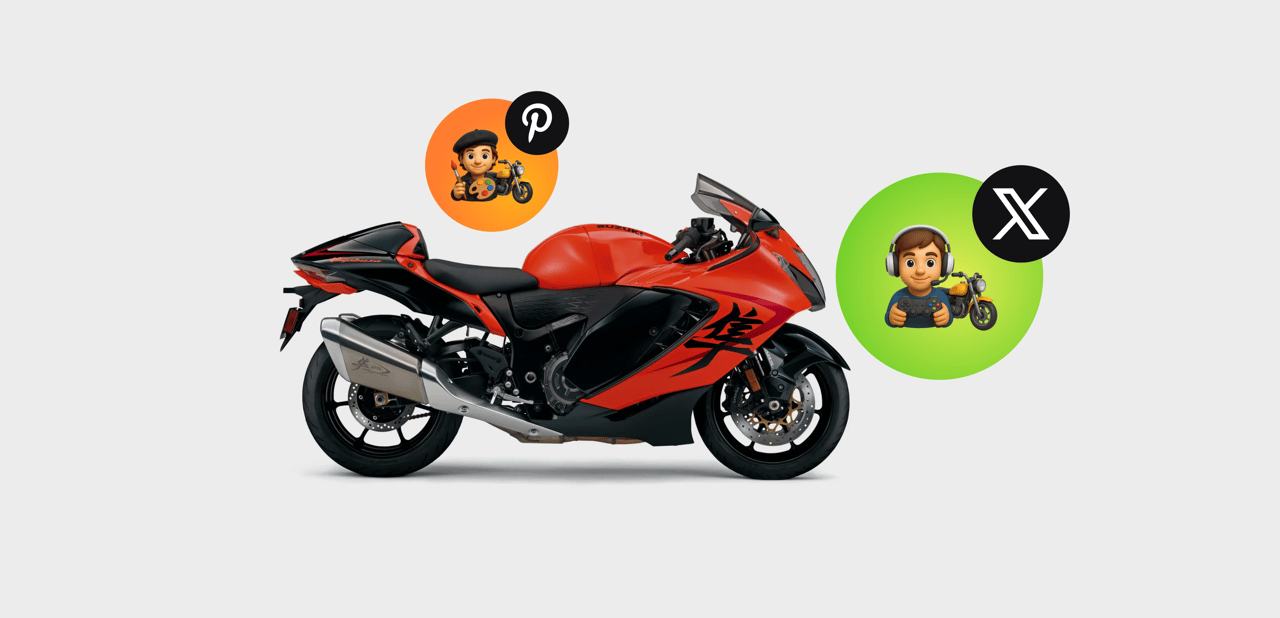How Michelin monitors social media: A step-by-step instruction manual

To some, social media is all about pretty pictures, fun videos, memes, cats and constant communication. But is it possible to use the power of social media for something more...
To some, social media is all about pretty pictures, fun videos, memes, cats and constant communication. But is it possible to use the power of social media for something more, like getting useful insights about your brand or your competitors? Can social media help reveal the needs of your clients in order to build a more effective marketing strategy?
The answer is yes, of course. This time, we will share the success story of social media monitoring as it's done by the MICHELIN brand, which receives detailed SML (Social Media Listening) reports with important business KPIs from YouScan’s research department.
Let’s dive right in!
Preliminary work and monitoring nuances
In order to have a fulsome social media monitoring plan, you first need to create a proper brief that determines the volume of work, monitoring topics, categories (tags) into which mentions are sorted, and criteria for notifications about significant mentions, etc. Currently, target posts are mentions of MICHELIN as well as other tire brands.
At first, it seems like a simple task. However, MICHELIN is known not only for its car tires, but also tires designed for trucks, airplanes, agricultural machines, etc. Additionally, the MICHELIN brand deals with travel guides, maps, restaurant recommendations, and motorsports. So in order to properly execute a social media monitoring strategy, one has to become well-versed in several areas and remember that the devil’s in the details. For example, a positive review can mention a Michelin star restaurant, or talk about café MichLen, which is located in Russia and has nothing to do with the MICHELIN brand.
After confirming the technical details, the next step is to create search queries for each topic. You have to consider various spellings of the brand name when creating the queries, because users can have different names for the brand or misspell the name. In order to simplify the task of working with this topic, you have to filter out irrelevant mentions. For MICHELIN, such mentions could relate to first and last names of people, for example, “Francesca” (Francesca Michielin is an Italian singer), “Rusler” (Rusler Michelin is the expert lead at UNESCO) and others. You can also use "stop words" to filter out commerce-related mentions that have no relevance to your client. YouScan’s new Auto-categories function can come in handy here.


The automatic sentiment analysis function makes it easier to work with a large data set of all monitoring topic streams. YouScan’s custom algorithm helps automatically determine the post’s sentiment as neutral, positive or negative. It’s still recommended that you check all the mentions’ sentiment assignment manually to account for any algorithm errors.
What does the workflow look like?
Now we’ve reached the most interesting part: working with the mentions collected by YouScan. The total volume of mentions in any given topic depends on the season and the news cycle. For MICHELIN, spring and fall are considered the peak seasons, because that’s when users actively discuss the topic of winter and summer tires and ask for advice. Various news stories can be caused by viral marketing from the brand, or a spike in positive or negative mentions as related to an event. Such spikes generally calm down within a couple of weeks.
All the mentions collected through keywords in the search query are processed manually, because not all irrelevant mentions can be filtered out using stop words. Posts by bots also have to be identified and removed manually. After scrubbing the data of irrelevant posts and bot content, each post is assigned a category tag. All kinds of content can be collected through mention streams, so it’s important to classify each post appropriately.
To help analyze mentions, the MICHELIN brand uses several categories for positive or negative mentions:
Passenger car (sedan) tires and their key consumer characteristics
Winter or summer tires
Here are some examples of mentions published on Facebook and VK that belong in the “Maps, tour guides and restaurant guides” and “Brand” streams:




Mentions that fall outside the aforementioned categories are generally neutral in sentiment – such as news stories, etc.
What's the end product?
After the social media mentions are collected, the YouScan research team:
analyzes spikes in mentions and their sources, if those were observed;
calculates the overall number of mentions, compares and contrasts that number with the previous periods;
presents all the online discussion platforms;
summarizes all the topics of discussion and gives examples of each one.
Based on this work, the team prepares monthly and quarterly reports. These reports calculate internal metrics and present certain standard industry indicators, such as the Net Sentiment Rate (NSR). This metric is designed to help you understand the correlation between positive and negative evaluation of your brand in the overall mention volume.
NSR= ((Positive mentions+Neutral mentions)-Negative mentions)/(Total quantity of 1 brand mentions)
So how do these reports help the brand? Artyom Stepanov, Michelin’s technical communications and thought-leader collaboration coordinator in Eastern Europe, explains:
"Modern technology should help businesses, and our company in particular, meet the needs of their customers – to create tires best suited for their needs, and provide timely, high-quality service. All information collected through YouScan helps us get to know our client base better, understand their pain points and preferences, and evaluate their overall impressions of our products. These days, it’s also vital for companies to have the ability to interact with the clients in real-time. This monitoring system allows us to find clients that needs support from our company, and assist them in a timely manner".
The MICHELIN project is one of many examples of international brands utilizing social media monitoring in their business. You can read about it in our interviews.
Do you want to receive useful insights and know exactly what your clients want? Try monitoring with YouScan today, and our research team will help make this dream a reality for your business!




